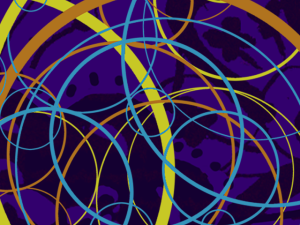He said Belarus would likely face economic tightening not only as a result of the coronavirus pandemic but also a Russian trade oil crisis that worsened this past winter.
Uladzimir Matskevich: Active desovietization is more relevant today than ever

The preservation of the Soviet ideology, the lack of a coherent and conscious desovietization turned Belarus into a rearguard state.
The regime is held in place not only by Lukashenko but ten thousands of people making up the state apparatus and the power structure from the bottom to the top. However it is not the majority of the population but a relatively small group of people keeping all country frozen. Belarus is governed by people pulling the country back into the past.
On November 7 Belarus celebrates a national holiday — the Day of the October Revolution. Why does Belarus still remain a prisoner of the Soviet myths and ideology?
Uladzimir Matskevich, philosopher and methodologist, answered the questions of the EuroBelarus Information Service.
— Of all the post-Soviet countries, only Belarus and Kyrgyzstan celebrate November 7. How did it happened that one of the most developed by Soviet standards former Soviet republics cannot escape the USSR past for the longest period of time?
— The destruction of urban life style, which has begun in 1920-1930, led to a washout of the indigenous urban population. It was replaced by people from villages. This process led to the Belarusans mostly feeling and knowing that the Soviet government has done a lot for them. Belarus was a model Soviet region and it was considered a rather developed one by Soviet standards.
Today Belarus cannot be called a developed country, despite it maintaining a close to the average standard of living. But as for the level of social, cultural, scientific and technical development, we are a backward country. It’s is impossible to maintain the average standard of living in a rapidly changing world for a long time: either we manage to go forward with the world processes, or we risk rolling backwards.
It is the preservation of the Soviet ideology and lack of conscious desovietization that turned Belarus into a rearguard state, not even catching up but rapidly falling behind the modern processes. The latest Lukashenko's speech based on archaic values and views on history and the present state of the world community, shows that we are losing the development pace, we are losing sensitivity to changes and we represent a fragment of the ancient world.
— So, the problem partially lies in the fact that Lukashenko did not managed to break out of the Soviet past?
— Lukashenko has stuck in his development at the first half of the 20th century level. However if it were for Lukashenko personally it would not be a problem. But the problem is that not only Lukashenko thinks like this in Belarus. The teachers preparing our next generation and university professors, who are absolutely unaware of modern management, administration and finance think just the same way.
— Even the LDP advocated for the abolition of the November 7 as a state holiday calling it a “communist holiday” and a day of grief for everyone else. Will the Belarusan leadership come to the same understanding?
— It is only after the carriers of the old paradigm die out physically that the new paradigm becomes a part of life, school and education. Therefore it’s no use expecting that today's government will adopt new ideas or become “aware of everything” and understand the situation. But it is impossible for our country that still retains its potential to be led by die-hard people of back views. Let them participate in the political struggle, defend the rights of the most vulnerable social groups — it could be their positive role.
— Historian Aleh Latyshonak believes that decommunization should start with the dismantling of monuments to the world proletariat leader. Is there any hope for changes while the symbols of the past remain with us?
— Indeed, it is necessary to remove monuments, to rename streets, but today they do not affect the consciousness of the society directly. They indicate that we live in a country where nothing is going to change, we live under the regime preserving things as they are now. We must begin with the education, the media for that is where the main changes happen. The demolition of monuments and renaming streets are manifestations of the changes in people’s mind.
While a letter by a dozen of veterans is perceived as the voice of the society and at the same time the opinions of hundreds of thousands of people are ignored in the political process, the illusion that the whole Belarusan society is in an archaic state is maintained. That is not true. We just lack the willpower, initiative to show our opinion in public and to modernize life. Today the most active and conscious people striving for modern life and never finding their place leave the country. This way the tribune in Belarus goes to the archaic forces and their opinion is presented as the opinion of the society.
But it is necessary to understand that the media in non-democratic countries does not reflect the public opinion — it shapes them. So even those who disagree with the regime policy say things they hear on TV when answering questions of sociologists.
— So, the only option for us is to wait for the carriers of the soviet ideology to naturally pass away?
— No, it is not an option. When in 1994 I said that Belarus is in pressing need of a program for rehabilitation of the country and the first point would be the desovietization, I was laughed at. Many people believed we don’t need the desovietization when the older generations will soon retire, hang up their axes, die out eventually and new people will come. But new people come with the old views: they learned them in school, they were raised this way. There will be no natural extinction if we do not actively confront the old ideas. Active desovietization is more relevant today than ever. Nothing will happen without our active participation and hard work. Maybe only crisis and rapid economic and social degradation process will lead to explosion of public anger.
But even if it happens and results in fundamental changes, we may find ourselves in the same situation as that of Belarus in 1991: the country gained independence but the advocates of independence were simply unable to take the power. And if same naive politicians as in 1991-1996 by chance will be given the power to rule the country the old state apparatus will impose its ways, attitudes and values on the new leaders. The regime is held in place not only by Lukashenko but ten thousands of people making up the state apparatus. However it is not the majority of the population but a relatively small group of people keeping all country frozen.
Others
-
From farewell to a new Eastern policy and towards a new development
Poland and Germany were both initiators and drivers of a New Eastern policy linked to the Eastern neighborhood and Russia/Soviet Union.
-
Uladzimir Matskevich: The sooner the "Union State" is denounced, the better for Belarus
Not only does the “Union State” undermine the establishment of civilized relations with Europe, but it hinders the possibility of normal relations between Belarus and Russia.
-
Uladzimir Matskevich: The regime can no longer control the situation in the country
The authorities are unable to prolong the social contract with the people: there is no way out of the social crisis.
-
Press release of the BNP in connection with the next round of the dialogue in the format of the EU-Belarus Coordination Group
Belarusan National Platform of the Eastern Partnership Civil Society Forum welcomes the dialogue process in the format of the EU-Belarus Coordination Group, the third round of which was held in Minsk on 3-4 April 2017.








Comments
Andrei Yahorau — Al Jazeera: “Lukashenko is irresponsible”
He said Belarus would likely face economic tightening not only as a result of the coronavirus pandemic but also a Russian trade oil crisis that worsened this past winter.